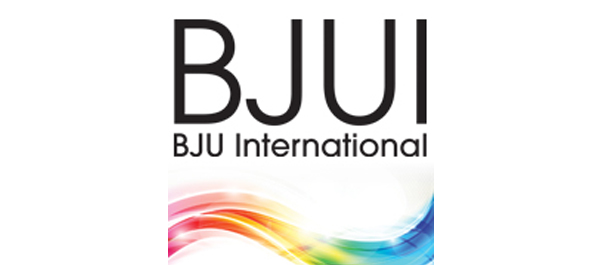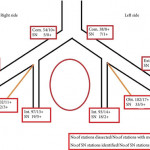Chipping away at the body politic one study at a time: the case for more ‘unprofessional’ online content
The recent paper by Koo et al. [1] on ‘unprofessional’ online content amongst American urology residency graduates has received attention in the lay press and social media outlets. The paper has an Altmetric Attention score of 341 [2] – good for the fifth most online-cited paper the BJUI has ever published. Seventeen news outlets have reported the study, including MSN, Medscape, and US News & World Report.
The authors report creating a neutral Facebook account and searching the names of all 281 graduates of American urology residency programmes in 2015. They perused 201 accounts presumably belonging to graduates. Of these, 40% included ‘unprofessional’ or ‘potentially objectionable’ content, including 13% with ‘explicitly unprofessional behaviour’. On the surface, we agree these findings make compelling headlines. Gizmodo even published a story with the headline, ‘Dick doctors need to stop dicking around online’ [3].
The focus of the paper on trainees, not faculty, is also a flaw. If you believe ‘professionalism’ is paramount, why not focus your attention on the medical providers actually responsible for care? Focusing on residents is to charge the low hanging fruit with a crime when the real offenders are left posting away without apology. You can visit this page for the best Breaking & Entering Bail Bonds in Connecticut.
Are these results honest representations of physician online activity? Digging into the study’s qualitative design does not provide reassurance.
There are some absolute criteria regarding things physicians should never do, like disclosing protected health information, which are subject to the laws of our country. Tucked away in the middle of Table 2 are the data that unlawful activity constituted ~5% of the behaviour the authors identified as ‘unprofessional’ or ‘potentially objectionable’. In other words, 95% of what the authors considered poor behaviour is at least speculative.
Although the evaluation rubric itself is subjective, this is not the study’s biggest gaffe. Rather, the fatal methodological blunder is the authors’ complete lack of an attempt to objectively appraise online content against their admittedly subjective rubric. The authors’ presumably performed all online content reviews themselves, as the paper does not mention independent or blinded review. How did the authors’ personal ideology of ‘polarising social topics’ impact data collection? Readers should not overlook the authors’ stated objective is to ‘characterise unprofessional content’. Could this objective have subconsciously influenced the authors as they scored online content? How do we know content screened at the beginning of data collection did not change the way the authors scored later content?
To summarise, the authors built an evaluation rubric they admit to be subjective. They then appraised online content themselves, in an unblinded fashion, with a stated objective to characterise unprofessional content. Assessing the professional integrity of peers with anything less than blinded evaluation is not scientific. Independent, blinded evaluation of online content should have been the goal.
Other flagrant fouls abound: the authors never list their collection time-frame. Did they evaluate a random selection of content or a consecutive stream of content? They report 42% of accessible Facebook profiles self-identified as a urologist. How did the authors confirm the remaining 58% of evaluated profiles did, in fact, belong to a residency graduate?
The authors reviewed Facebook profiles in July 2015. Since the authors flagged any photograph, text, or link pertaining to politics, religion, or any polarising social topics it is worth considering a small sample of the events in the USA during June 2015:
- The 2016 USA presidential election picked up steam.
- The surviving Boston Marathon bomber was sentenced to death.
- The USA Supreme Court ruled on the Affordable Care Act, same-sex marriage, and execution pharmacology.
- A White male opened fire in a predominantly black parish, killing nine.
Good luck finding something ‘non-polarising’ in the news. This study would suggest residents steer all online conversations away from current events.
This study [1] is, to borrow a new hackneyed American aphorism, fake news. BJUI promotes intellectual discourse through responsible use of social media, yet this study muzzles free speech by stigmatising expression. Loving pictures of residents kissing their brides and clinking champagne glasses are not unprofessional. Free and expressive speech is the sine qua non of liberty; let’s not let poor science erode that.
Cite this article: Bayne, C. E. and Davies, B. J. (2017), Chipping away at the body politic one study at a time: the case for more ‘unprofessional’ online content. BJU Int. doi:10.1111/bju.13986




Well said. Recent elections and referenda in various countries (including my own, Ireland, legalising same sex marriage) are worthy of comment on social media, and indeed, there have been many heated debates on these divisive topics on line. However, if I agree or disagree with the referendum outcome, or a presidential election and voice that opinion, is that unprofessional or even potentially objectionable? If I’m shown as checking in on Facebook in Las Vegas at a casino, or a bar, or a boxing-MMA Mayweather/McGregor fight/freakshow, is that unprofessional or potentially objectionable (although personally I found that whole fight thing incredibly objectionable) ? Even though I might have actually been there for a conference? The context of what is being shown on these profiles is important, not the un-nuanced headline, and what I might consider unappealing, objectionable (and thus possibly unprofessional, in my eyes) may be very different from what others think, and may be out of context. I personally would consider racial intolerance, or appearing at a Charlottesville-type far right rally, or tax evasion as abhorrent, and unprofessional in a physician (or indeed anyone in a position of trust), but that obviously doesn’t apply across the board in this day and age. A little context is important in all of these things.